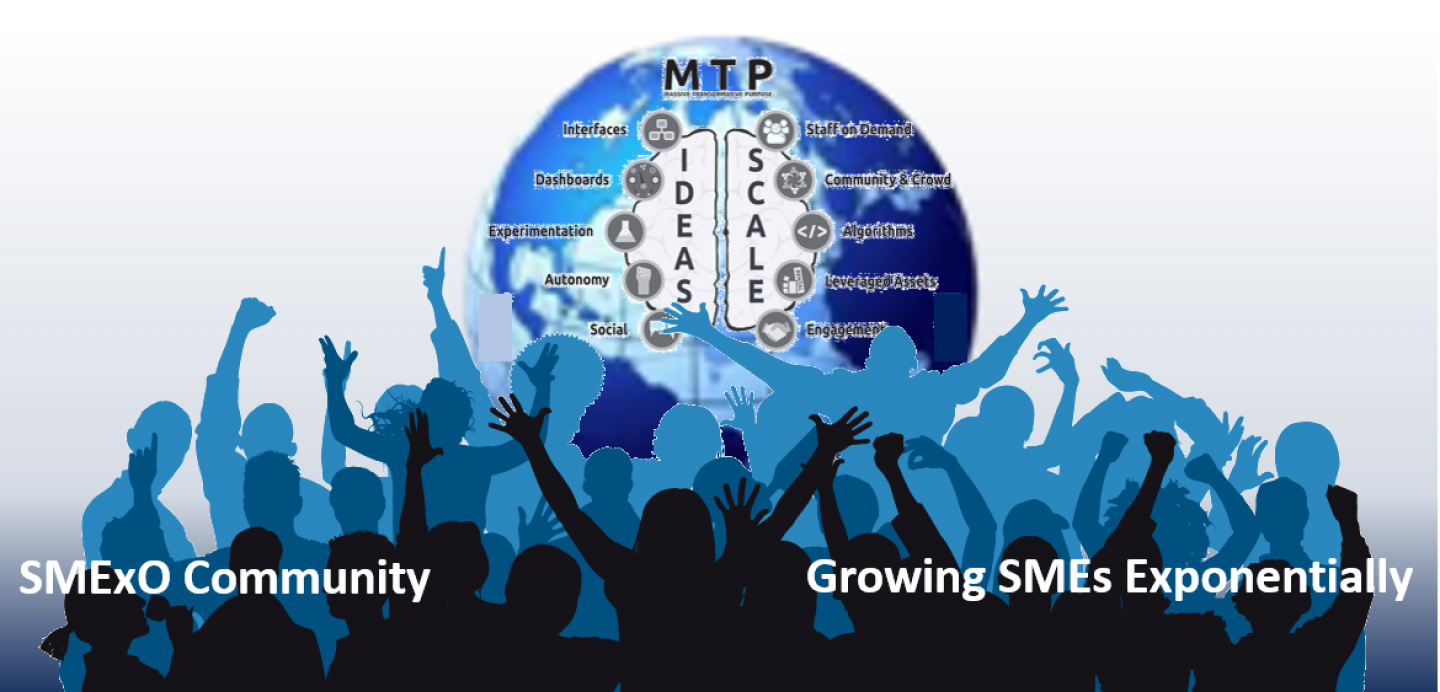Empower your employees: The fourth dimension of digital transformation

At a ASNET Board (1) seminar in September on digitalization, Tete Mensa-Annan Director Microsoft Technology Center gave a great presentation on the four dimensions of digital transformation as they apply to most companies.
Digital transformation is according to Tete a continuous iterative process working on four dimensions: , Engage your customers, Transform your products, Optimize your operations and Empower your employees.
In our previous posts we wrote about how ExO-Tools might be applied by SMExOs (Small Medium sized Exponential Organizations) to engage with customers , to transform your products or to optimize your operations.
In this post we discuss how ExO-tools may be applied to empower your employees.
Tete said about empowering your employees that “Employees need digital and intelligent tools adapted to their specific needs and workstyle. They need insight, knowledge and access to data across devices and geography. Empowering your employees enables them to make the right decisions and allows them to utilize their full potential for the benefit of your company and their job satisfaction.”
How could an SMExO (Small Medium sized Exponetial Organization) apply ExO-Tools to empower your employees?

Perhaps ExO-tools like Social Technologies, Autonomy and Staff-On-Demand may be applied when you empower your employees?
Social Technologes are Exo-Tools that facilitate coherence and engagement within your SME-organization as well as with your community and clients.
Social Technologies foster horizontal interactions even in vertically organized companies. Most importantly, they reduce information latency—shortening the time from idea to acceptance and implementation. Examples of social technologies include file sharing, telepresence, virtual worlds and emotional sensing tools. Social Technologies keep communication channels open. More communication allows for greater transparency, and importantly, this keeps the organization connected to its massive transformative purpose (MTP).
Why are Social Technologies important?
- Faster conversations
- Faster decision cycles
- Faster learning
- Stabilizes team during rapid growth
Key questions you should ask yourself:
- How will we leverage social technologies to improve communication (within our team/community/clients)?
- What social network/tools can we use?
- Can we use social tools to do some of the work for us?
Autonomy is an internally oriented ExO-Tool that facilitates agility and flexibility in your SME-organization.
Self-organizing, multi-disciplinary teams operating with decentralized authority provides the basis for “permissionless innovation” to support exponential growth. Autonomy also increases agility, efficiency, transparency and accountability within an organization.
Why is autonomy important?
- Increased agility.
- More accountability at customer face.
- Faster reaction and learning times.
Key questions that you should be asking yourself:
- How can we reduce decision-delay or approval-chains?
- How can we avoid to much management and allow the staff to grow?
- Is there a framework/tools we could use Objectives and Key Results (OKR), Holacracy etc.?
Staff-On-Demand is an externally oriented ExO-Tool which helps extend your SME-organization.
Growing your SME by employing more people can reduce maneuverability and slow your company down. Thanks to Internet-based services, all levels of work, including highly skilled labor, can now be outsourced.
It may sound counter-intuitive that Staff-On-Demand may empower your employees – but knowledge-intensive companies are already contracting out more work to the market partly to save costs and partly to free up their cleverest workers to focus on the things that add the most value. Thus, more and more of the routine parts of knowledge work can be parceled out to individuals, just as they were previously parceled out to companies.
Why is Staff-On-Demand important?
- Enables learning
- Allows agility
- Forms cohesion in core team
Key questions to ask yourself:
- Can we build a cloud of external “employees”?
- How could we have the best employees for each activity?
- How should we find and hire?
- By using an agency? Direct? Local? Remote? Platform?
(1) ASNET Board is supporting Danish SMEs in establishing an external board of directors and in this way strengthen the companies management. ASNET Board is a network organisation consisting of experienced managers working professional in company boards

Leave a Reply
You must be logged in to post a comment.